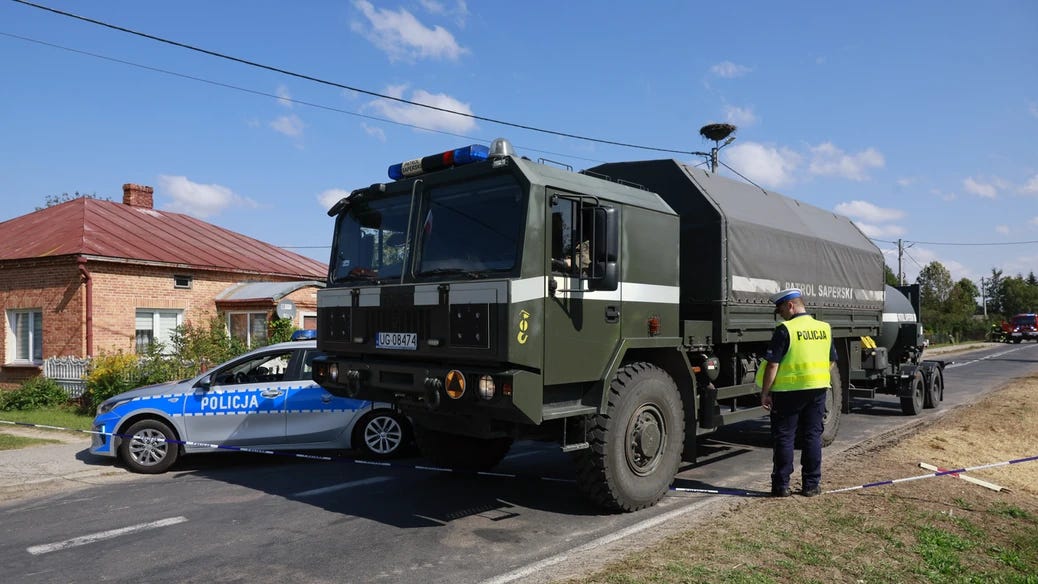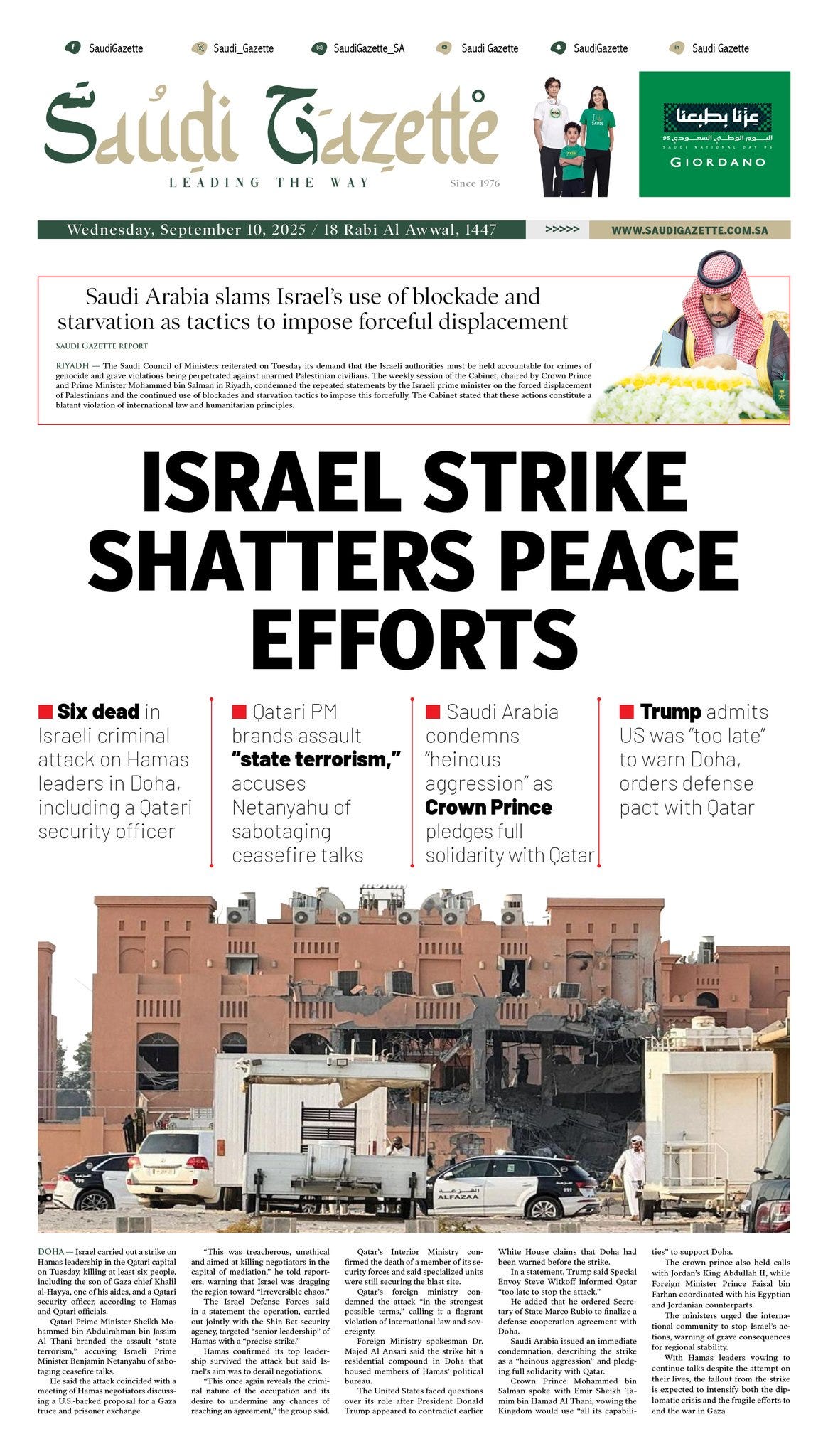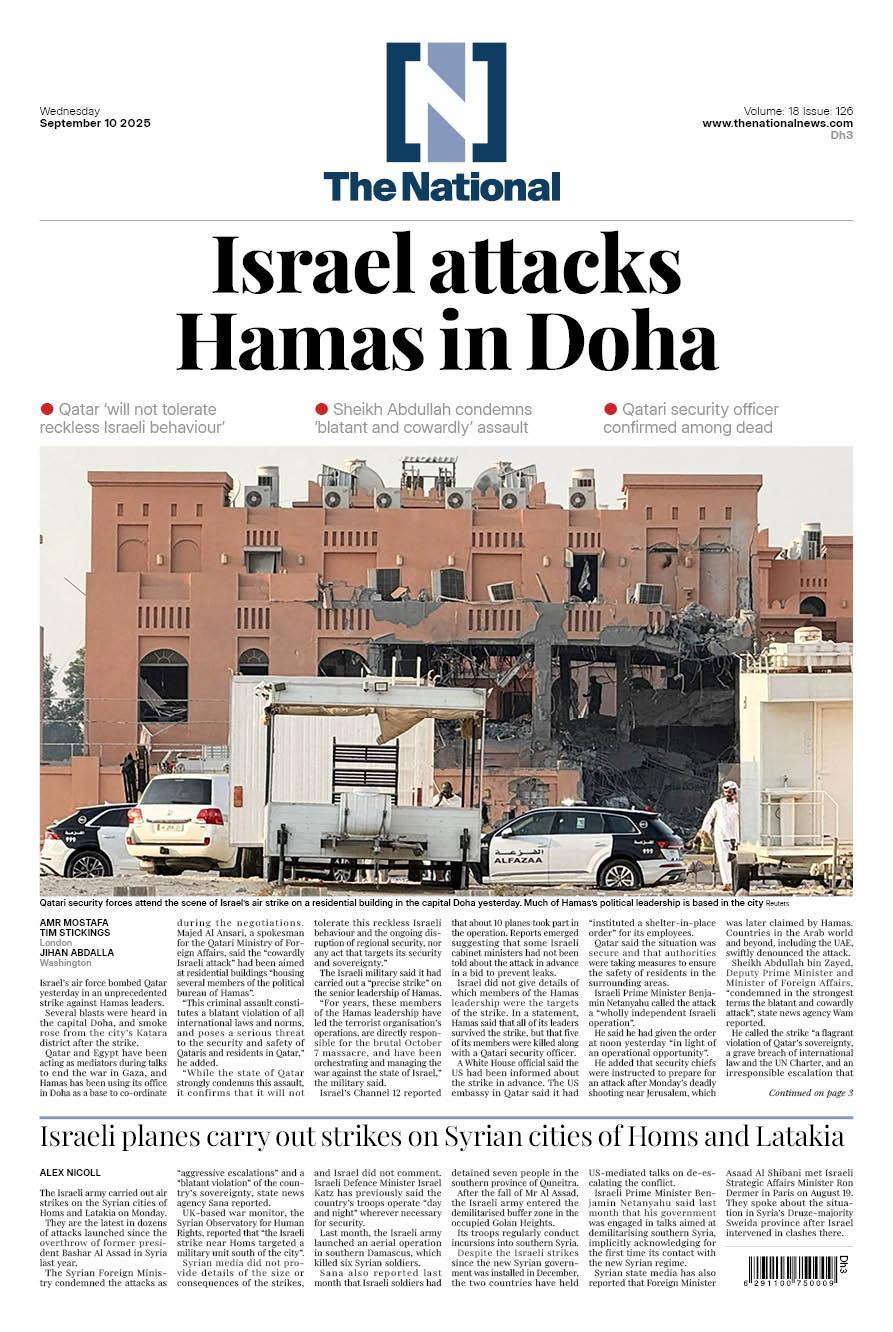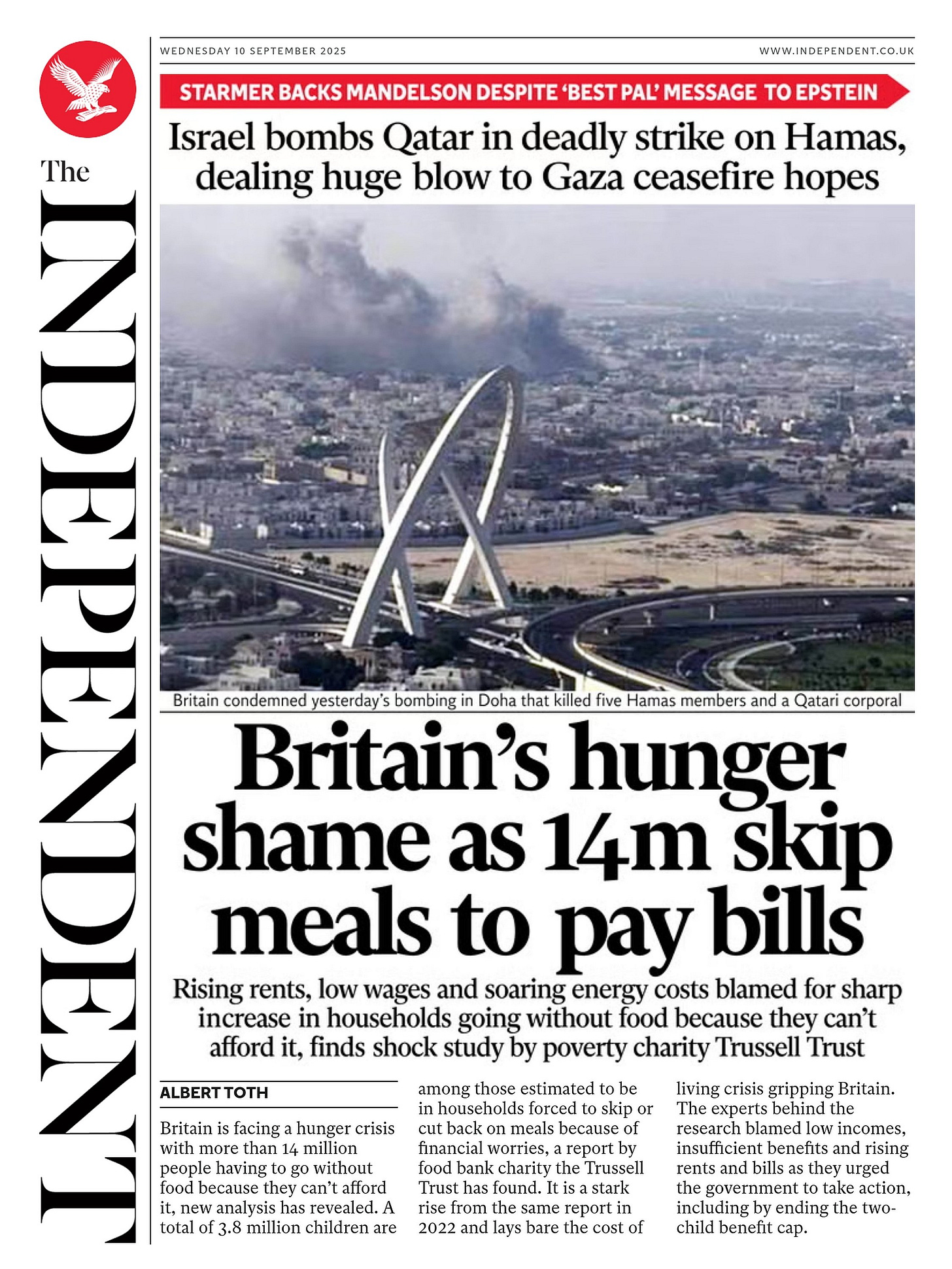Poland Wants to Talk Tough. Its Air Defenses Tell Another Story
PM Donald Tusk says “actions speak louder than words” — but Poland shot down just 4 drones out of nearly two dozen. Ukraine’s 93% success rate shows who’s really on the front line.

NATO has activated Article 4 of the North Atlantic Treaty after Russian drones violated the country’s airspace overnight, a Polish government spokesperson has confirmed. Article 4 of the treaty mandates consultation among member nations whenever one believes its territorial integrity, political independence or security is threatened. Warsaw requested the alliance invoke the provision following the “unprecedented” violation of its airspace amid a large-scale Russian attack on western Ukraine. Polish and NATO jets were scrambled and at least 4 of the 19 drones were shot down. The incursion marked a significant escalation by Moscow, as it is the first time Russian drones have been shot down over the territory of a NATO member state. Government spokesman Adam Szłapka told private broadcaster Polsat News that NATO had activated Article 4 at Poland’s request. Poland previously requested Article 4 in 2014 after Russia’s illegal annexation of Ukraine’s Crimean Peninsula and again in 2022 following Moscow’s full-scale invasion of Ukraine - TVP/Poland
NATO and European Union leaders have strongly condemned the “unacceptable” Russian violation of Polish airspace, with Polish Prime Minister Donald Tusk warning that Europe now faces its most dangerous moment since World War II. French President Emmanuel Macron condemned the incursion as “simply unacceptable,” adding that he would speak soon to NATO Secretary General Mark Rutte. “We will not compromise on the safety of our allies,” Macron wrote on social media platform X. Italy’s Foreign Minister Antonio Tajani described the breach as “very serious and unacceptable” and “an offence to the internal security of the entire Euro-Atlantic area.” Czech Prime Minister Petr Fiala described the violation as a test of NATO countries’ defense capabilities, saying it was difficult to believe it to be just a coincidence. “(Russian President Vladimir) Putin’s regime is threatening all of Europe and systematically testing how far it can go,” he wrote on X - TVP/Poland
My hot take analysis….
“Actions speak louder than words,” Polish PM Donald Tusk told parliament after Russian drones once again violated Polish airspace. But what actions?
Warsaw — backed by NATO — should move immediately to declare a no-fly zone over western Ukraine, patrolling and shooting down incoming Russian drones and missiles before they threaten Polish skies. After all, Mr. Tusk said Poland is at its "closest to open conflict since World War Two.”
I am not alone in calling for tough responses from Warsaw and Brussels. Newsweek Polska called today for a "firm reaction” from the government and Nato, saying "the Kremlin only understands the language of force".
At home, Poland should also close the loopholes that still allow Russian citizens to enter. Yes, a general ban is in place, but exceptions remain for certain categories of workers and for those entering via other Schengen states. Shutting those doors would send a clear message, even if it puts Warsaw at odds with more cautious EU partners.
Let’s be blunt: Poland is now a frontline state. Overnight drone incursions forced the closure of several airports and triggered air-raid alarms - ordinary Poles are living with the war on their doorstep. If Moscow wants to escalate, Warsaw must respond in kind. And the thousands of Russians still traveling to Poland to apply for U.S. and other visas? That privilege should end the moment Russia exports its war into Polish skies.
And yet, there’s another problem. As the BBC’s Vitaliy Shevchenko points out, Poland managed to shoot down only four out of 19 (or two dozen, according to President Zelensky) drones that crossed its airspace. Compare that to Ukraine, which the same morning intercepted 386 out of 415 — a staggering 93% success rate. Hardly impressive performance by Poland, especially given the superior hardware at its disposal. If Warsaw wants to convince its allies — and its own citizens — that it’s ready for frontline status, that gap in air defense effectiveness must be closed, fast.
We are witnessing the constant failure of NATO states to accurately assess their security concerns and national interests. Last night’s “training wheel” attack by the Russians on Poland (and that is what it was) shows how the states of the alliance have not bothered to prepare properly for not only future war—but the war that is staring them right now in the face. Moreover, their constant weakness to this point has emboldened Russian to flagrantly violate NATO airspace while reinforcing the idea that NATO states have no idea how to look after their own security. They cannot even call an attack, an attack - Phillips P. Obrien, professor of strategic studies
Hamas has said five of its members were killed in an Israeli air strike in Qatar's capital, but claimed that an attempt to assassinate its negotiating team "failed". Hamas said the negotiating team was meeting to discuss the latest US proposal for a ceasefire in the Gaza Strip at a residential compound in Doha when it was badly damaged by a series of explosions. Israeli Prime Minister Benjamin Netanyahu said the strike was "fully justified" because it targeted senior Hamas leaders who organized the 7 October 2023 attack on Israel. Qatar condemned the Israeli attack, calling it "cowardly" and a "flagrant violation of international law". The Gulf state's interior ministry said one member of its Internal Security Force was killed and others were injured, without mentioning any Hamas casualties. The White House said US President Donald Trump believed the incident was "unfortunate" but that eliminating Hamas was "a worthy goal". Qatar is a key US ally in the region that is the location of a major American air base. It has hosted the Hamas political bureau since 2012, and has served along with the US and Egypt as a mediator in indirect negotiations between the group and Israel. Witnesses in Doha said they heard as many as eight separate explosions on Tuesday afternoon, with plumes of smoke rising above the city's northern Katara district. The strike hit "residential buildings housing several members of the Political Bureau of Hamas", according to Qatari authorities. Within minutes, Israel said it was behind the blasts. The Israel Defense Forces (IDF) and Shin Bet internal security service said in a statement that they conducted "a precise strike targeting the senior leadership" of Hamas - Saudi Gazette
Security remains tight around the area struck by Israel in the Qatari capital as investigators pore over the scene. From a distance beyond the security cordon, the buildings that housed the Hamas leadership in Doha can be seen still standing. But one room in particular appeared to have been the target of the strike. Its walls were collapsed and grey rubble could be seen inside. The area where the attack took place is a residential one in Doha where many people live – one that’s also surrounded by many embassies and consulates. Diplomats not only work there; some live there, as well. Abdullah al-Shayji, a professor of political science at the University of Kuwait, has described Israel’s attack on Qatar as “a very dangerous development” and a “turn of events” in Israel’s ongoing conflict in the region. Speaking to Al Jazeera, he said the region is finding itself “on the verge of facing another storm – this time stirred by Netanyahu, who is growing increasingly bold”. “This is foolish behaviour, and just like the Qatari foreign minister said, this is state terrorism, and one that affects the entire region. For this reason, we need a stronger reaction rather than just condemnation and denunciation,” he said - Al Jazeera
US President Donald Trump reportedly suggested that Brussels and Washington jointly impose tariffs of up to 100% on China and India to pressure Russia to end its war in Ukraine. According to the Financial Times, Trump made the proposal during a call with European leaders this week, while his energy secretary urged the EU to cut off all remaining purchases of Russian fossil fuels to win political support in Washington. Officials in Brussels have expressed skepticism that Trump will actually punish Moscow, though: He has repeatedly threatened the Kremlin, and persistently lamented its continued attacks against Ukraine — Russia launched another aerial barrage overnight — but rarely followed through - Semafor
Pleased to share the news that my interview with Times Radio of London has been viewed by well over 800,000 people.
“Putin's deal to bolster the Russian economy with oil trade deals appears to have fallen through during his time in China for the SCO summit and military parade, says Michael Bociurkiw on Frontline.” Watch it here
Since the beginning of Russia’s full-scale invasion of Ukraine, at least 128 media workers have been killed. According to the verified data provided by the National Union of Journalists of Ukraine (NUJU) and the International Federation of Journalists, among those killed (as of September 5, 2025) were 18 media persons (both Ukrainian and foreign) who were performing their professional duties; 10 media workers registered as civilian victims, and 100 media representatives mobilized for the defense of Ukraine to the ranks of the Armed Forces of Ukraine. “If Russia had not unleashed this shameful war, all our colleagues, journalists, and media workers could continue to work successfully, create quality information content for their audience, write articles, make reports, and shoot TV stories and documentaries. They could benefit people and contribute to Ukrainian and world culture,” says NUJU President Sergiy Tomilenko. “But the aggressor state decided they should die leaving their families in severe grief, people uninformed, deceived by Russian propaganda and intimidated.”
A cruise ship passenger took a pretty major gamble ... intentionally going overboard, allegedly to dodge the massive debt he'd run up while onboard! Federal officers have arrested Jey Gonzalez-Diaz after they say he jumped from a cruise ship into the ocean during a U.S. Customs and Border Protection inspection at the end of a week-long cruise around the Caribbean. Gonzalez-Diaz was then brought to shore by someone riding a Jet Ski, according to CBS News, and what appears to be surveillance video shows the moment he was pulled out of the water. Quite the getaway! Except, it failed ... U.S. CBP agents say they later found Gonzalez-Diaz in the Puerto Rico Capitol Building, and they allege he was in possession of $14,600 in cash, two phones and five IDs. Officials say Royal Caribbean later told them Gonzalez-Diaz owes the company $16,710.24 ... "almost exclusively associated to Casino and Gaming expenses.” Gonzalez-Diaz is being accused of attempting to avoid monetary reporting requirements when traveling into the U.S. ... a federal offense.- TMZ






